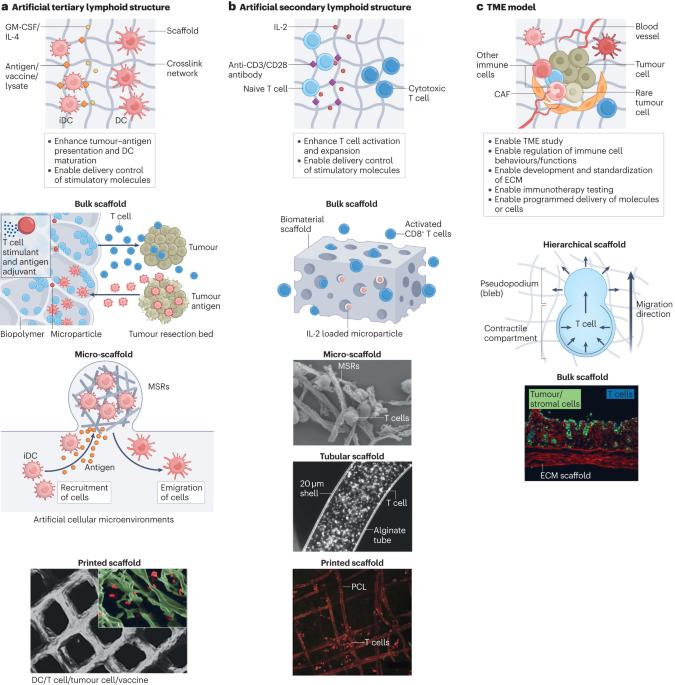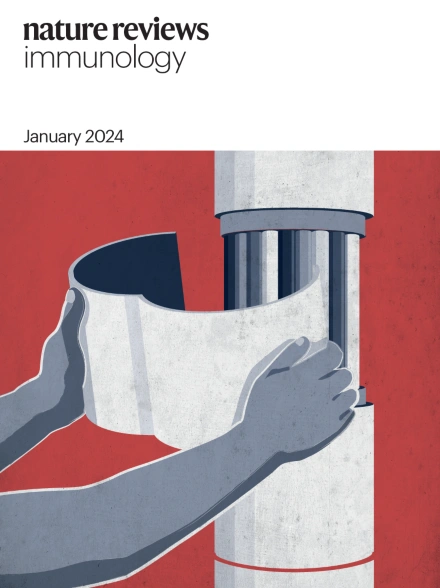Harnessing 3D in vitro systems to model immune responses to solid tumours: a step towards improving and creating personalized immunotherapies
IF 67.7
1区 医学
Q1 IMMUNOLOGY
引用次数: 0
Abstract
In vitro 3D models are advanced biological tools that have been established to overcome the shortcomings of oversimplified 2D cultures and mouse models. Various in vitro 3D immuno-oncology models have been developed to mimic and recapitulate the cancer–immunity cycle, evaluate immunotherapy regimens, and explore options for optimizing current immunotherapies, including for individual patient tumours. Here, we review recent developments in this field. We focus, first, on the limitations of existing immunotherapies for solid tumours, secondly, on how in vitro 3D immuno-oncology models are established using various technologies — including scaffolds, organoids, microfluidics and 3D bioprinting — and thirdly, on the applications of these 3D models for comprehending the cancer–immunity cycle as well as for assessing and improving immunotherapies for solid tumours. This Review describes recent advances in the field of 3D in vitro modelling technologies that enable a better understanding of immune cell and tumour cell interactions in the tumour microenvironment. The authors explain how such systems can be used to assess the efficacy of novel immunotherapies, including personalized immunotherapies, for patients with cancer.

利用三维体外系统建立实体瘤免疫反应模型:向改进和创造个性化免疫疗法迈出一步。
体外三维模型是一种先进的生物学工具,它的建立克服了过于简化的二维培养和小鼠模型的缺点。目前已开发出各种体外三维免疫肿瘤学模型,用于模拟和再现癌症免疫周期、评估免疫疗法方案以及探索优化当前免疫疗法的方案,包括针对个别患者肿瘤的方案。在此,我们将回顾这一领域的最新进展。首先,我们关注实体瘤现有免疫疗法的局限性;其次,我们关注如何利用各种技术(包括支架、有机体、微流控和三维生物打印)建立体外三维免疫肿瘤学模型;第三,我们关注这些三维模型在理解癌症免疫周期以及评估和改进实体瘤免疫疗法方面的应用。
本文章由计算机程序翻译,如有差异,请以英文原文为准。
求助全文
约1分钟内获得全文
求助全文
来源期刊

Nature Reviews Immunology
医学-免疫学
CiteScore
93.40
自引率
0.40%
发文量
131
审稿时长
6-12 weeks
期刊介绍:
Nature Reviews Immunology is a journal that provides comprehensive coverage of all areas of immunology, including fundamental mechanisms and applied aspects. It has two international standard serial numbers (ISSN): 1474-1733 for print and 1474-1741 for online. In addition to review articles, the journal also features recent developments and new primary papers in the field, as well as reflections on influential people, papers, and events in the development of immunology. The subjects covered by Nature Reviews Immunology include allergy and asthma, autoimmunity, antigen processing and presentation, apoptosis and cell death, chemokines and chemokine receptors, cytokines and cytokine receptors, development and function of cells of the immune system, haematopoiesis, infection and immunity, immunotherapy, innate immunity, mucosal immunology and the microbiota, regulation of the immune response, signalling in the immune system, transplantation, tumour immunology and immunotherapy, and vaccine development.
 求助内容:
求助内容: 应助结果提醒方式:
应助结果提醒方式:


